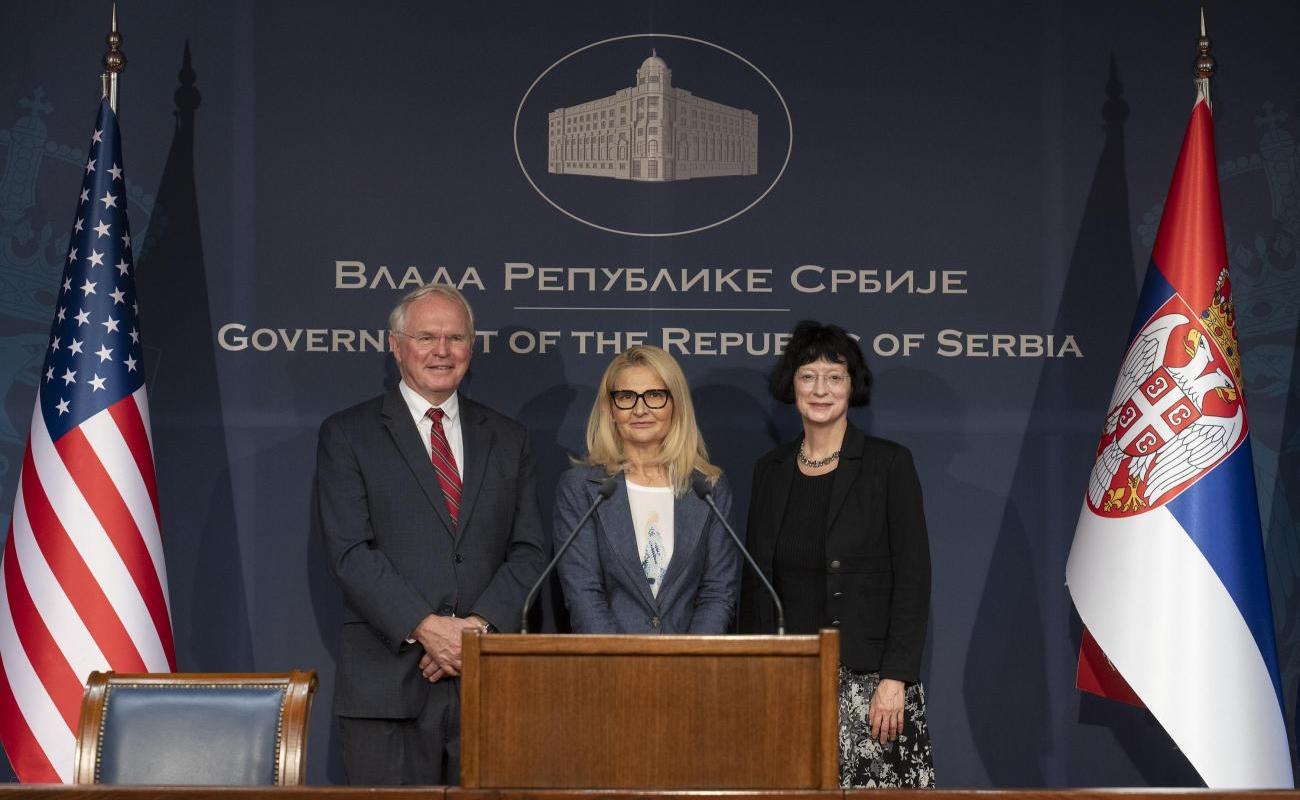United States Adds $18 Million in New Funds to Development Partnership with Serbia

Today, the United States Government, through the United States Agency for International Development (USAID), announced an additional $18 million in assistance to Serbia, as part of amendments to existing assistance agreements. These funds will be used to, among others, help Serbia improve its public procurement process, increase citizen access to justice, improve environmental protection and energy security, promote a stronger media environment, improve economic opportunities for disadvantaged groups, and make Serbia’s economy more competitive.
U.S. Ambassador Christopher R. Hill witnessed the signing of the amendments by Minister for European Integration Ms. Tanja Miščević and USAID Mission Director Ms. Brooke Isham.
“The United States, through USAID, is adding $18 million to our existing assistance agreement with Serbia to help make the economy more competitive and strengthen government operations," said U.S. Ambassador Hill. He highlighted that USAID focuses on the areas where Serbia says it needs assistance. The Ambassador emphasized that there is a true partnership, and that what the U.S. Government is trying to do through USAID is to make sure that it is supporting Serbia on the things it needs and wants to do as part of its accession to the European Union.
Minister Tanja Miščević thanked the United States of America for its strong support for Serbia's path towards the EU and stated that the new 18 million dollars in grants to Serbia represent the continuation of cooperation with one of the most important development partners. "These funds will be used for projects such as the improvement of the public procurement system at the central and local level, which will contribute to lower procurement prices. In the area of justice, the focus will be on educating citizens to better understand and protect their rights. More than 1,000 small and medium-sized enterprises will have the opportunity to increase their profitability through business modernization, while new funds for agriculture will enable interest-free financing in the most underdeveloped municipalities. Energy efficiency projects will include the renovation of buildings and improvements to heating systems, while social welfare projects will help the most vulnerable categories to improve their chances for employment and a better quality of life," said Miščević.
